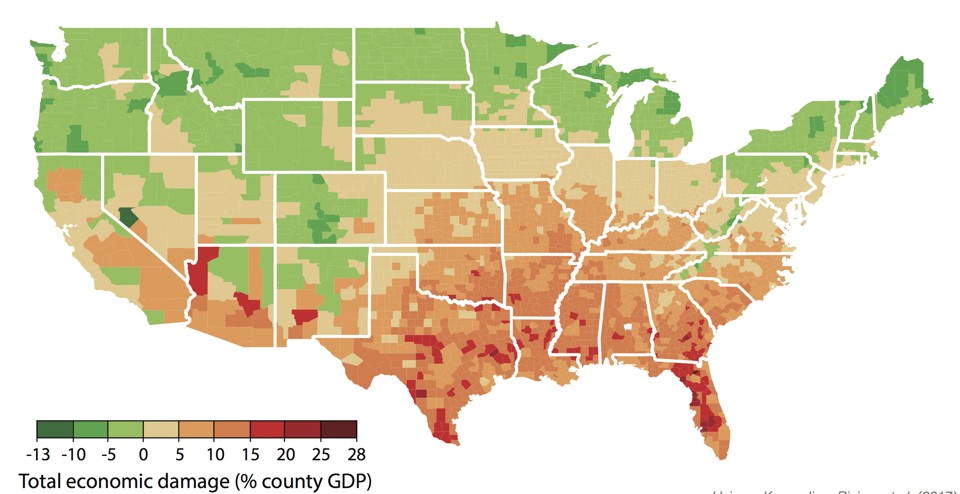The Texas economy could face some of the costliest consequences of climate change as temperatures continue to increase over the next several decades, according to a new study.
In the study published last week in the journal Science, researchers found that the economic burden of climate change will hit states along the Gulf Coast – including Texas – harder than the colder, northern states that will profit from warmer weather.
[…]
The study estimates that the U.S. economy will lose about 0.7 percent of GDP per year by 2080 for each degree Fahrenheit rise in global temperatures.
Texas, however, will likely see a loss of 3.4 to 9.5 percent per year beginning in 2080. And Harris County could face median damages worth up to 6 percent of GDP a year beginning in 2080. Some counties in Texas could fare much worse, facing damages up to 20 percent of GDP – ranking them among the worst hit counties in the nation.
Much of the costs for Texas come from higher heat-related deaths, said James Rising, a postdoctoral fellow at University of California at Berkeley who coauthored the study. By the end of the century, mortality rates in the state likely will increase by between 16 to 45 death for every 100,000 people due to the extreme heat. For perspective, Texas currently experiences about 13 motor vehicle deaths for every 100,000.
Researchers also were able to measure the economic impact climate change would have along the coast, with Texas ranking among the five states impacted most. With rising sea levels and stronger hurricanes, the study analyzed the potential cost of damage faced by Gulf Coast properties.
The study, which comes from researchers at the Climate Impact Lab, relies on “business-as-usual” emissions estimates, mapping the effects of climate change if nothing is done globally to mitigate greenhouse gas emissions throughout the 21st century.
You can see the study here. As you can see from the map, the entire South really takes the brunt of it, which given how widespread climate denialism is in that part of the country seems like a particularly brutal form of poetic justice. Too bad the people who are the biggest part of the problem will be long dead before the worst of the effects take place. But hey, no worries, it’s just our kids and grandkids. The Atlantic and the Press have more.

